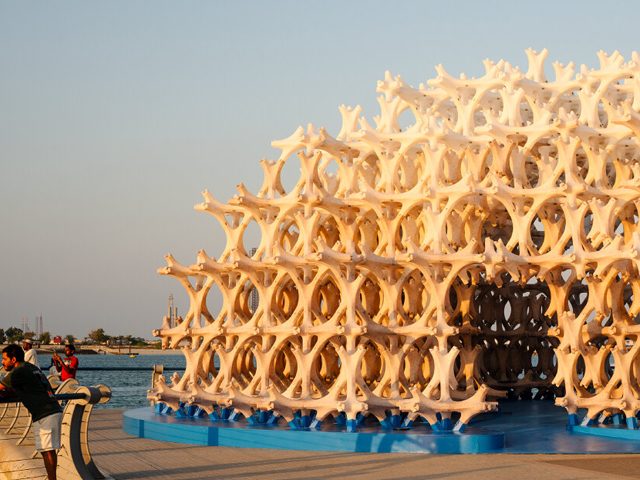TRANSITIONING FROM A GREEN ECONOMY TO A BLUE ECONOMY
13 Feb 2013
Colour without pigment, metals without mining and fresh air without filters. Is this the future of the Blue Economy?

Colour without pigment, metals without mining and fresh air without filters. Is this the future of the Blue Economy?

Entrepreneur, author and activist Gunter Pauli argues that while we set our sights on a ‘green economy’, many green solutions are a case of doing less bad, rather than doing good.
Pauli’s ‘blue economy’ is about tackling our great environmental problems in new ways, and finding solutions that are environmentally advantageous and have wider financial and social benefits.
Pauli’s book, The Blue Economy, features 100 innovations such as how coffee waste can be converted into protein to farm tropical mushrooms, how glass can become a multifunctional construction material and how the tricks of light used by humming birds and peacocks may reduce our need for heavy metals in paints. These 100 innovations, Pauli argues, can lead to 100 million jobs in 10 years.
The Blue Economy suggests we should be focusing on interconnected systems - and how finding synergies between the environment, economy and society can be good for us all. The challenge is “to be inspired by nature,” Pauli says, “which does not know the concept of waste and has evolved to an amazingly well-structured system of life which is in permanent co-evolution.”
The great leap forward will be when industry “attempts not to just reduce its waste and minimise its adverse impacts, but to actively target the creation of more structure and value,” Pauli argues.
The creator and designer of Zero Emissions Research & Initiatives (ZERI), Pauli is a keynote speaker at this year’s Green Cities conference and expo, which will be held from 6-7 March in Sydney.
He’ll share his insights into how we can look beyond the green economy and why the new economy could be ‘blue’, allowing business people from around the world to develop, share and implement prosperous business models that improve natural ecosystems and quality of life for all. Register today for Green Cities 2013.

MORE NEWS

DECOMMISSIONED WIND TURBINE BLADES RECYCLED INTO ASPHALT FOR NEW ROADS

SUSTAINABLE PRACTICES IN PUBLIC ART IN DUBAI

THE FINAL STAGE OF THE BARANGAROO DEVELOPMENT APPROVED

SMART, EFFICIENT AND SUSTAINABLE LAWN MAINTENANCE FOR COMMERCIAL SPACES

SETTING SAIL ON INNOVATION: PORT GERMEIN INCLUSIVE PLAYGROUND

